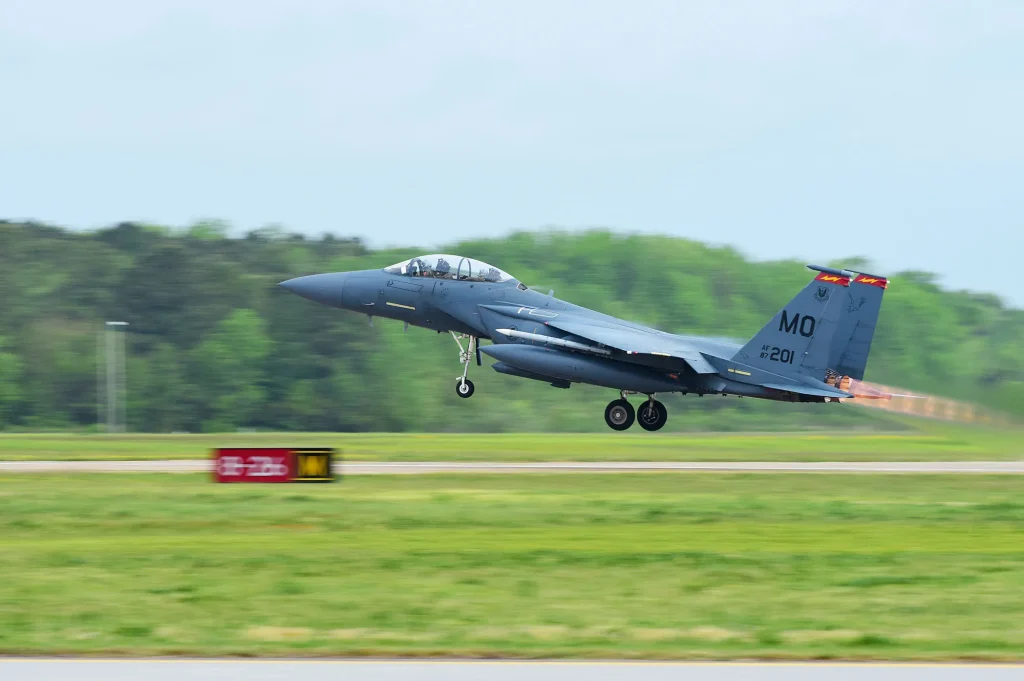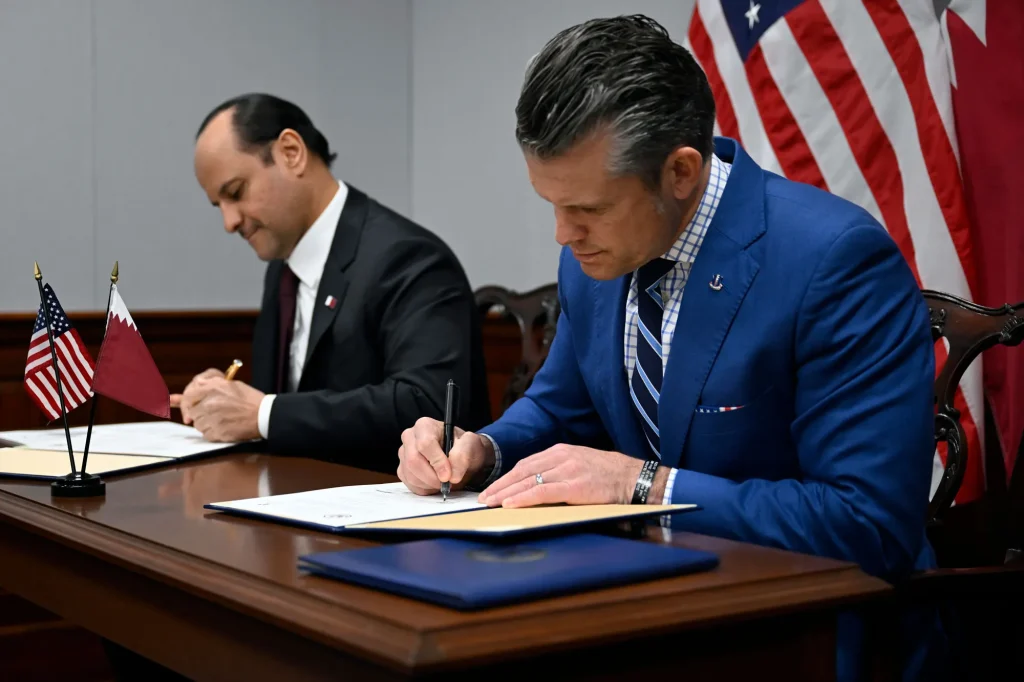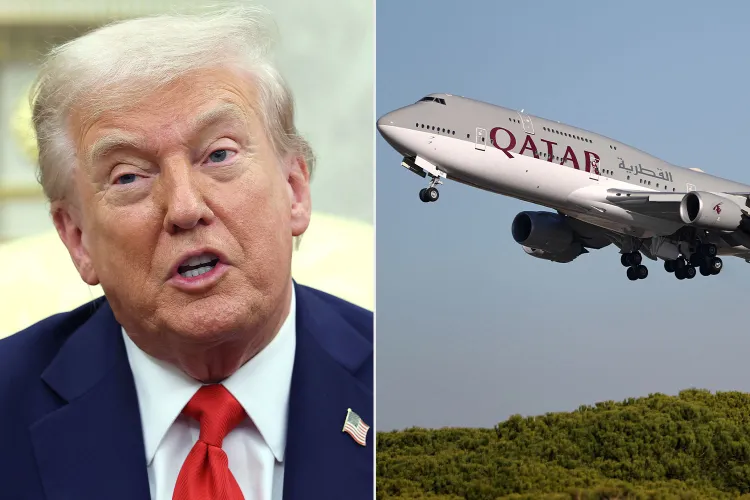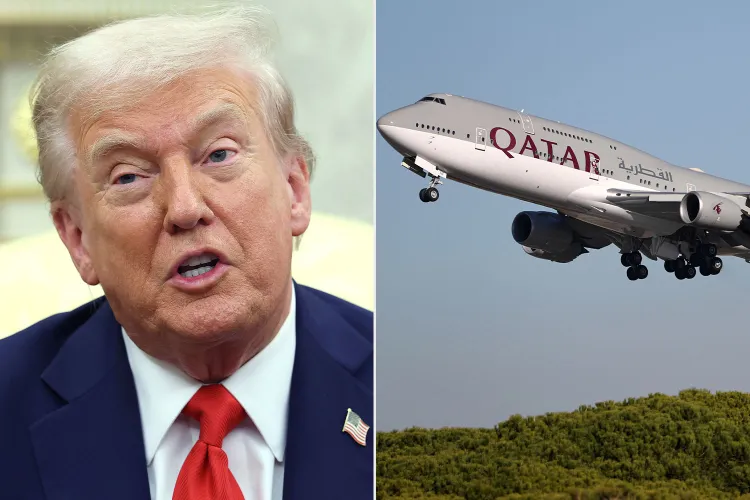Months After Gifting Donald Trump a Luxury Jet, Qatar Gets U.S. Approval to Build a Military Facility in Idaho — Raising Eyebrows in Washington
A new U.S. military partnership with Qatar is drawing attention — and controversy — after the Gulf nation was granted approval to build a military facility at an Air Force base in Idaho, only months after gifting the Pentagon a luxury aircraft that former President Donald Trump plans to use as part of the Air Force One fleet.

The deal was announced by U.S. Secretary of War Pete Hegseth, 45, during a meeting with Qatari Defense Minister Saoud bin Abdulrahman Al Thani at the Pentagon on Friday, October 10. According to officials present at the event, the partnership is being described as a “strategic cooperation project” aimed at strengthening U.S.-Qatar defense ties, particularly in training and logistical support.
While the agreement marks a continuation of the close relationship between Washington and Doha that has existed for decades, the timing of the announcement has stirred debate across political circles. The decision comes just months after Qatar delivered a high-end Boeing jet to the Pentagon — a model now slated for official use by President Trump — sparking renewed scrutiny about foreign influence and optics in defense-related dealings.
A Pentagon spokesperson emphasized that the decision to allow Qatar to construct a facility in Idaho was “based solely on strategic defense planning” and not influenced by any prior exchanges or gifts. The official added that the project will help bolster U.S. military readiness and reinforce ties with one of America’s most stable partners in the Middle East. “Qatar has long been a trusted ally in maintaining regional security,” the spokesperson said. “This facility will serve joint training and logistics purposes essential to ongoing operations.”

Qatar’s government, for its part, released a brief statement praising the partnership, calling it a “symbol of mutual respect and collaboration.” Minister Al Thani noted that the initiative reflects the “deep and enduring friendship between the two nations” and will focus on defense technology, intelligence sharing, and humanitarian coordination.
However, critics have pointed out that the optics surrounding the deal are hard to ignore. Lawmakers from both parties have quietly raised concerns over whether such timing sends the wrong message — particularly in an election year where questions of transparency and influence loom large. The gift of a luxury jet to the Pentagon earlier this year, followed by this Idaho facility approval, has fueled speculation that foreign partners may be attempting to curry favor with Washington leadership.
Defense analysts argue that the development underscores the complexity of U.S. alliances in the Gulf. Qatar hosts the Al Udeid Air Base, one of the largest U.S. military installations outside American soil, housing thousands of troops and serving as a command hub for operations in the Middle East. The country has also maintained strong ties with both U.S. administrations and international defense networks, making it an indispensable — if sometimes controversial — partner.

Still, many observers see the Idaho project as part of a broader geopolitical strategy rather than a transactional gesture. As global military priorities shift toward multipolar competition, partnerships with smaller but resource-rich nations like Qatar have become vital to U.S. logistical flexibility. “The U.S. is not just strengthening ties; it’s diversifying its military footprint,” one defense consultant explained. “This is about readiness and global presence, not necessarily politics.”
For now, the Pentagon insists that all procedures followed proper oversight and that the Idaho base project remains under U.S. control and supervision. The planned facility will reportedly include training areas, research offices, and shared intelligence infrastructure. Construction is expected to begin in 2026, following environmental and security evaluations.
While the move may appear routine within defense circles, its timing ensures that public debate will continue. Between the optics of the Qatari jet and the approval of a new foreign-led military project on American soil, the conversation about transparency, diplomacy, and influence in U.S. defense policy is far from over.


